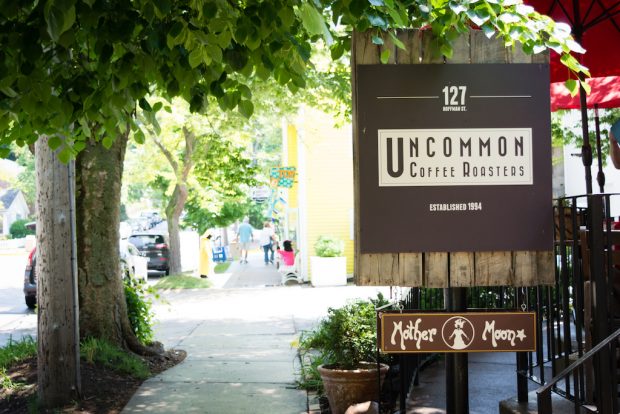
At the Uncommon Coffee Roasters flagship cafe in Saugatuck. All photos courtesy of Uncommon Coffee Roasters.
Twenty-two-year-old Michigan-based roasting company Uncommon Coffee Roasters has been careful and steady with its expansion over the years. Its sole standalone café in Saugatuck opened its doors in 1994, before the company brought roasting in house six years later with a used Probat L5 that remains on the floor of that café.
In 2012, the same year they became an NGLCC Certified LGBT Business Enterprise, they threw their weight into wholesale, establishing a 3,500-square-foot off-site roastery and educational center in Douglas, Mich., centered on a Probat L12, which was joined a year later by a 75-pound-capacity San Franciscan roaster.
Now with more than 230 wholesale accounts on board, UCR is expanding again, this time into the super-hot field of RTD cold brew coffee. Roughly six weeks ago the company rolled out its inaugural three flavors of cold brew packaged in 16-ounce milk-style cartons, produced in partnership with local Michigan-based Guernsey Farms Dairy for their contributions of half-and-half and chocolate milk to those respective flavors, as well as their expertise in pasteurization and carton packaging.
The most popular flavor by far, according to UCR, is the pure, “Straight” coffee edition, the carton for which includes an asterisked footnote clarifying, cheekily, that the product is “Straight coffee made by a Certified LGBT Business Enterprise.”
“We’re in west Michigan, which is a very conservative area. Being a gay-owned business wasn’t necessarily a positive thing 22 years ago,” UCR founder Guy Darienzo told Daily Coffee News. “We became certified four years ago and we use it to our advantage now, instead of being disadvantaged by it.”
Darienzo explained that because the Human Rights Campaign scores Fortune 500 companies with an HRC quality index score and the National Gay and Lesbian Chamber of Commerce is a partner of the HRC, Fortune 500 companies’ HRC score improves by doing business with a NGLCC Certified LGBT Business Enterprise such as UCR. This has significantly broadened their wholesale horizons, and already netted some substantial clientele.
In the quality-focused, coffee-centric company’s 2,000-square-foot flagship café, situated inside an old house at 127 Hoffman Street in Saugatuck, they have an onsite bakery preparing sweets and savories using local ingredients for enjoyment at tables inside, on the front porch or in the back garden.
Espresso drinks are prepared on a 4-group La Marzocco GB5 paried with a Mahlkonig Twin K30 grinder, while an EK43 grinds for a Hario V60 pourover station. At their roastery, where they roast the greens sourced through Royal Coffee both east and west, Café Imports and others, along with about a third of their supply sourced directly from farmers, the company offers educational opportunities that range from brewing methodology to a “roaster for a day” experience that walks people through the whole process of cupping, profiling, roasting and blending.
The company plans to continue building its cold brew program, to which this week they’re adding nitro cold brew on tap at their café and for wholesale customers. Currently also available in bottles is a cold brew made from whiskey barrel-aged coffee. “I was not a big fan in the beginning, but we’ve got it down where it’s not overpowering,” said Darienzo. “It really complements the coffee.”
The company eventually intends to roll out an all-pure, dairy-free canned RTD cold brew line, which will include the nitro cold brew as well as flat single-origin editions.
Going forward, UCR intends to keep building its wholesale business and extending the distribution of its cold brews. The canning of single-origins and other brews is slated to begin in two or three months. Meanwhile they hope also to continue forging new relationships for as much directly sourced green coffee as possible.
“We’re always looking for great coffee,” said Darienzo. “Whenever we can know the farmer and work with the farmer, that’s the best.”
Howard Bryman
Howard Bryman is the associate editor of Daily Coffee News by Roast Magazine. He is based in Portland, Oregon.



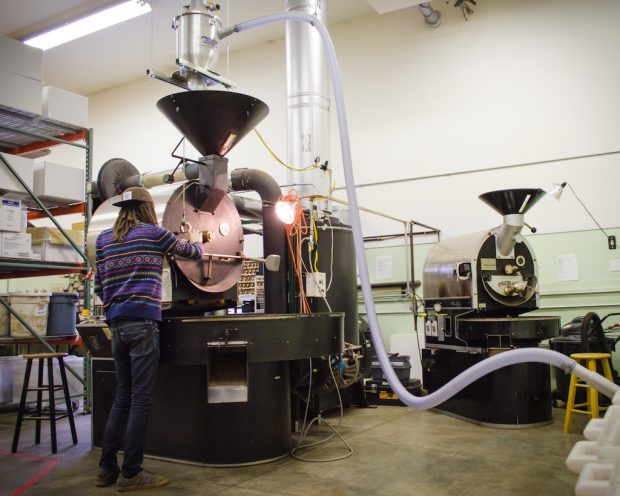
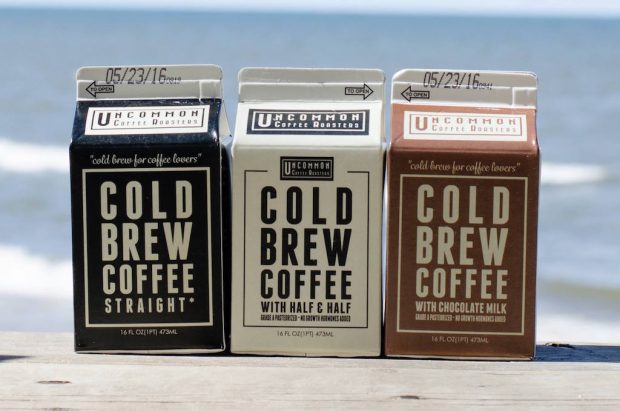
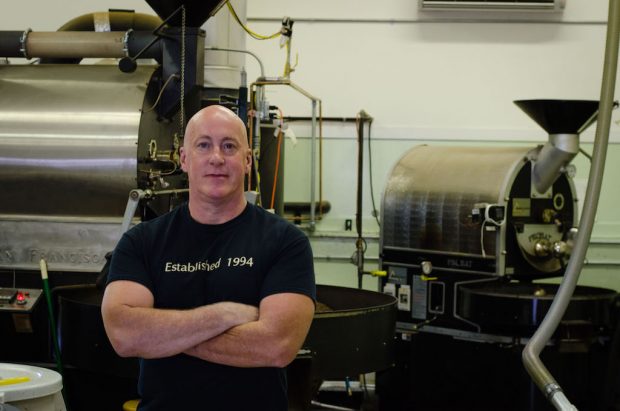
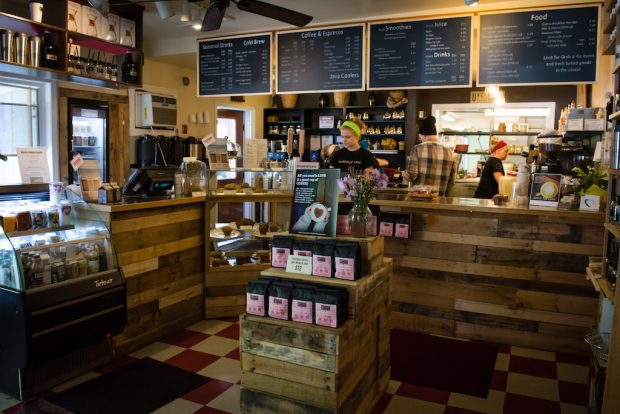
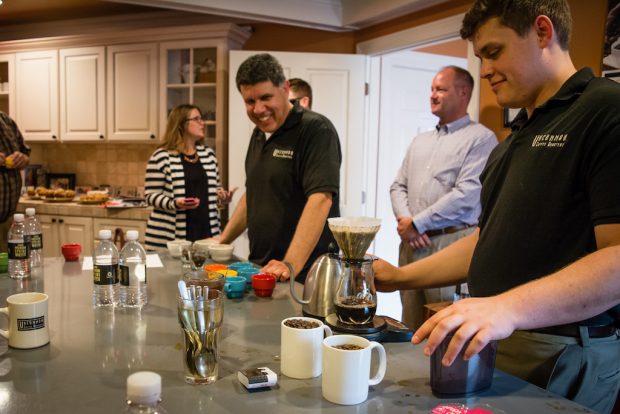



Comment